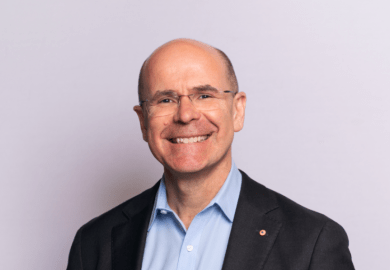As universities in the US – and around the world – face battles over free speech rights, the established standard known as the Chicago Principles is getting some competition.
New entries just this month in the realm of ensuring fair political exchange on US campuses include the Campus Call for Free Expression, put forth by the presidents of more than a dozen leading universities; and the Princeton Principles, offered by a non-partisan coalition of faculty calling itself the Academic Freedom Alliance.
While the Chicago Principles have gained the endorsement of more than 80 colleges and universities over the past decade, reflecting its measured call for campus leaders to respect diverse ideas within their communities as much as possible, the newer entries reflect attempts to more aggressively confront and head off the problems that continue to arise in many corners of academic life.
The Princeton Principles, developed by a coalition of scholars at Princeton University, call more directly than the Chicago framework for university leaders to avoid taking their own stances on controversial issues – partly reflecting the concerns of some of its more conservative-leaning participants over attempts to promote some types of diversity.
“Universities should not be made into political or ideological battlegrounds,” the Princeton authors write.
The Campus Call for Free Expression, meanwhile, is more of a summons to action, aimed at suggesting ways institutional leaders can anticipate problems related to free speech and help create more productive environments for the inevitable debates.
It was formed by the leaders of universities that include Cornell, Duke, Rutgers and Notre Dame, who want it to promote “a coordinated set of presidential and campus activities focused on free expression,” including actively teaching their students how to engage productively in campus debates.
Together, the two additions seem to represent attempts to modernise and expand on the Chicago Principles – launched in 2014 by the University of Chicago’s then president, the late Robert Zimmer, and its provost, Eric Isaacs – rather than directly challenge them, said free speech activist Jonathan Friedman.
Dr Friedman is director of free expression and education programmes at the writers group PEN America, which has begun its own work with college presidents to help them tackle the real-world challenges they face before, during or after actual campus confrontations.
As how-to manuals for an institution to use in the moment of a rising problem, the Chicago guidance and the newer versions can offer a campus president only limited advice for the complications that will accompany real-world events, Dr Friedman said. The more practical advice in the newer models, he said, includes understanding that many students arrive on campus with little to no experience in public discourse, and need some basic training in how to behave.
As for the bigger-picture free speech crisis confronting US higher education, Dr Friedman said, institutions and their advocates around the country need to pay close attention to the growing threat of government interference, as seen in cases such as Florida’s government replacing the leadership of a respected institution, New College, with a panel of partisan activists.
“To me, in the hierarchy of threat to freedom,” Dr Friedman said, “I always see the most alarming threats as coming from the weaponisation of government.”
Register to continue
Why register?
- Registration is free and only takes a moment
- Once registered, you can read 3 articles a month
- Sign up for our newsletter
Subscribe
Or subscribe for unlimited access to:
- Unlimited access to news, views, insights & reviews
- Digital editions
- Digital access to THE’s university and college rankings analysis
Already registered or a current subscriber? Login








